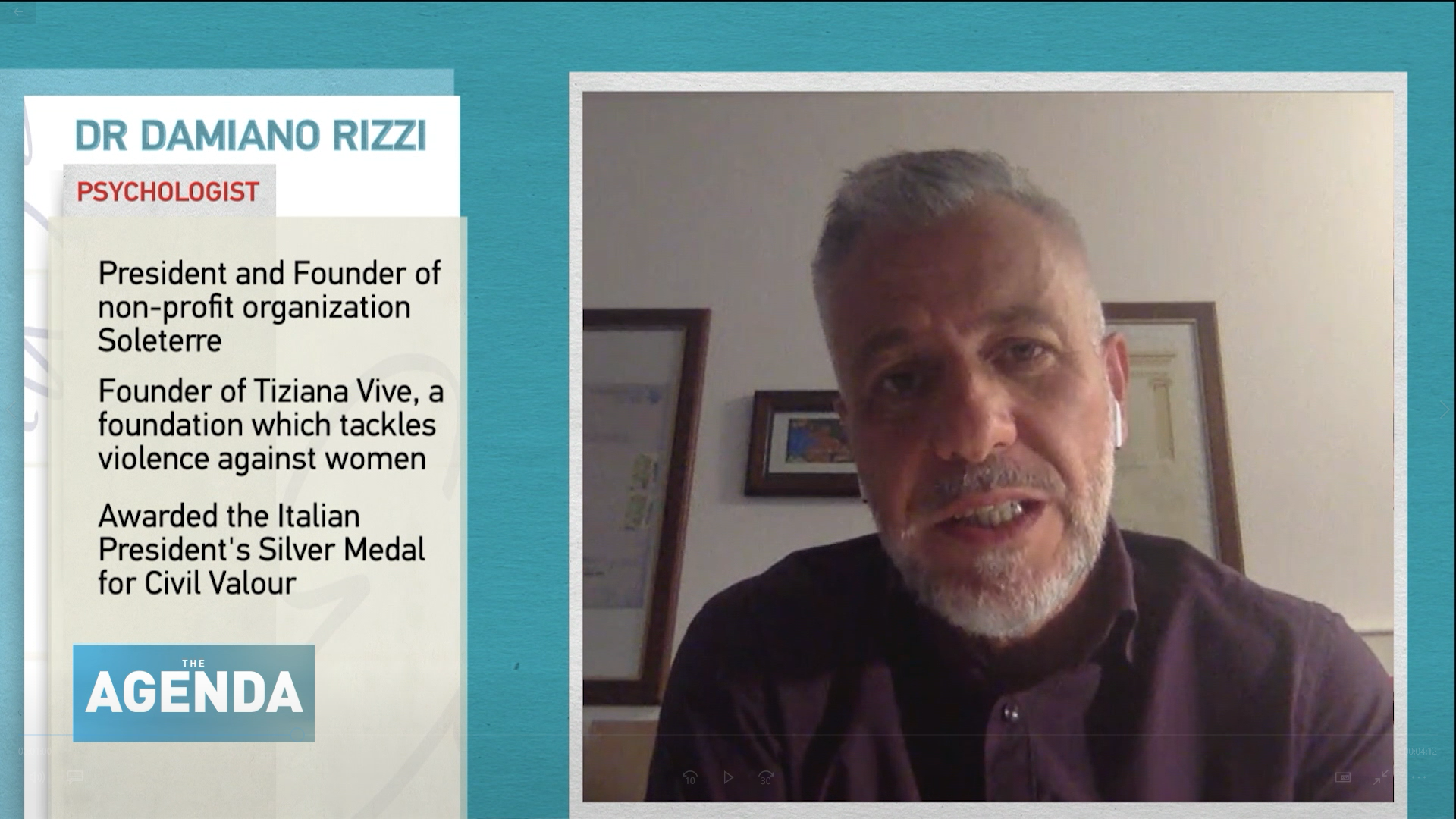01:02

Having worked so hard to fight off the COVID-19 pandemic, doctors and nurses across the world are struggling with post-traumatic stress, anxiety and depression.
In one of Italy's worst-hit hospitals, Damiano Rizzi leads a team of psychologists through his non-profit organisation Soleterre to help healthcare workers tackle the mental health problems brought on by the pandemic – as he told Stephen Cole on The Agenda this week.
"There is a particular defense mechanism that is called dissociation," Rizzi explained. A person with dissociation feels disconnected from the things he or she is doing; as Rizzi put it, "in order to work, you have to not think. During the experience, during the work, there is a hyperactivation and the doctors and nurses work without thinking."
However, "now that we are in a moment in which they think again," healthcare workers are suffering the effects – and need help from organizations like Soleterre. "Unfortunately, we have to find the money by ourselves," says Rizzi, who thinks that governments and workers fear the "stigmatization" of mental health provision.
Rizzi thinks mental health is a nationwide emergency – and not just for medics, as Italy starts to pick up the pieces. "The creation of a national psychological support fund would help not only healthcare nurses and doctors but also the normal population that now move from home to work – a lot of them have a lot of economic problems."
Watch The Agenda's full interview with Damiano Rizzi here:
05:12
